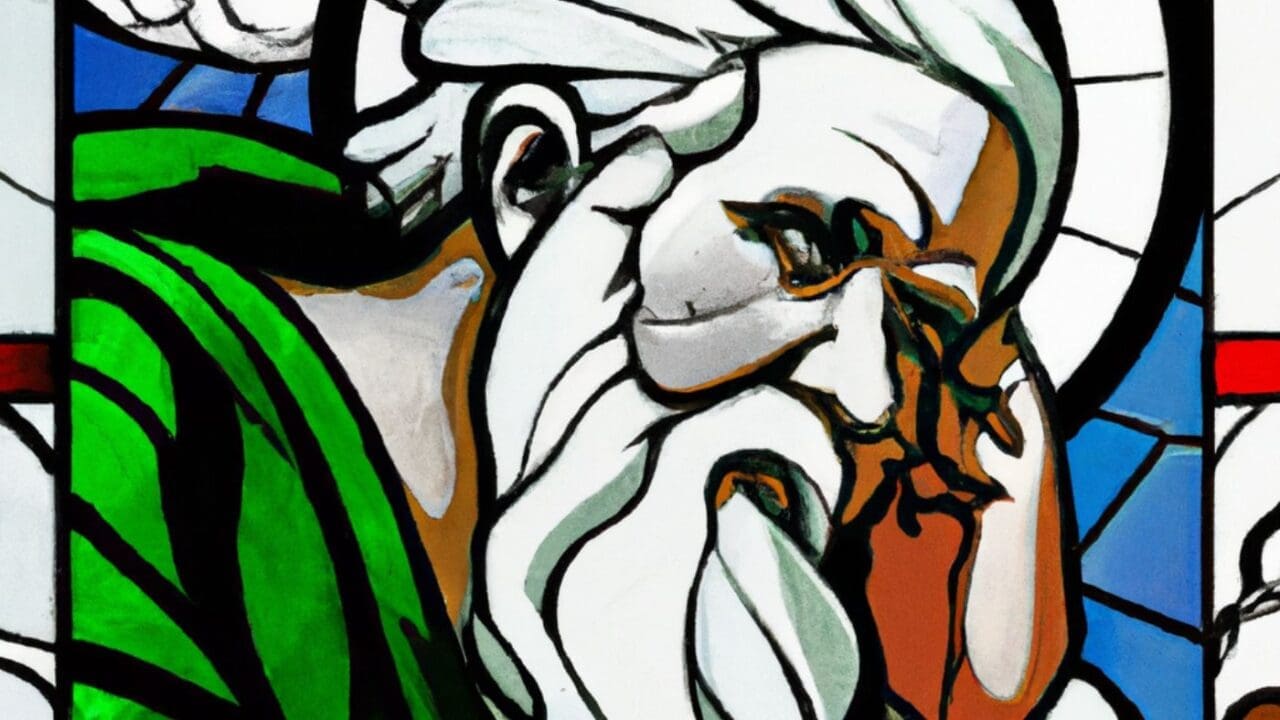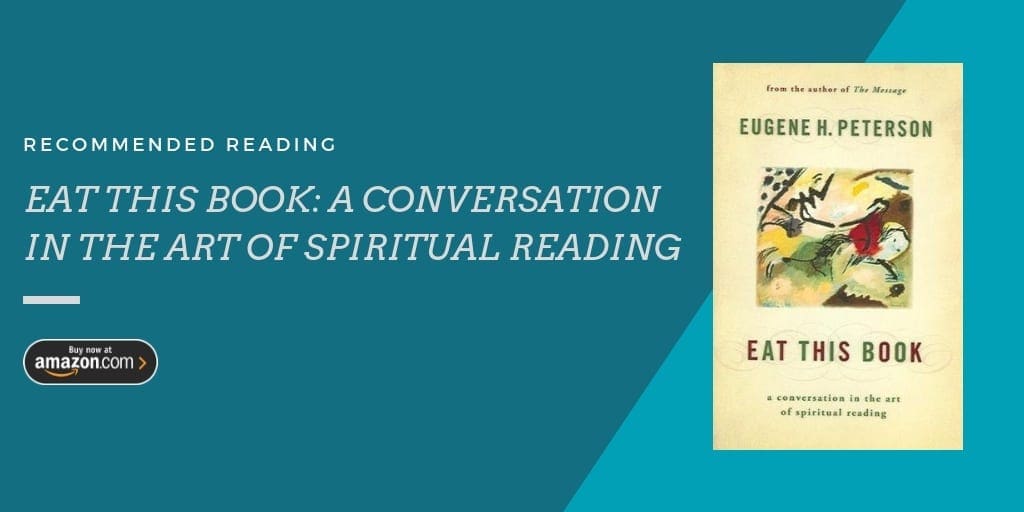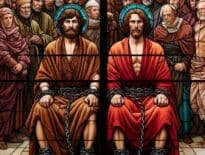the reading
The days are surely coming, says the Lord, when I will make a new covenant with the house of Israel and the house of Judah. It will not be like the covenant that I made with their ancestors when I took them by the hand to bring them out of the land of Egypt—a covenant that they broke, though I was their husband, says the Lord. But this is the covenant that I will make with the house of Israel after those days, says the Lord: I will put my law within them, and I will write it on their hearts; and I will be their God, and they shall be my people. No longer shall they teach one another, or say to each other, “Know the Lord,” for they shall all know me, from the least of them to the greatest, says the Lord; for I will forgive their iniquity, and remember their sin no more.
the sermon
My wife, Krista, teases me… Because I have a tendency to cry while watching movies, TV shows, and sometimes even commercials.
She knows when it’s coming. Things start getting a little emotional, and there I am, probably reaching for a blanket or pillow or whatever I can find to hide my face and cover the tears.
My kids have even picked up on it! “What’s dad doing? Is he CRYING?!”
I can’t help it. I remember being that way all the way back to being a young child watching Old Yeller. I don’t know why I’m like that. I just feel deeply.
And I imagine that the prophet Jeremiah was the same way. He’s often referred to as the Weeping Prophet. He endured far worse in his life than anything I ever have.
But I totally understand his heart. He had to deliver some difficult messages to his people, only to be rejected, ridiculed and ignored. He watched his people fail to heed his warning, and then fall into the very destruction and captivity he foretold them was coming.
Jeremiah cared deeply about God and the people.
overview of jeremiah
Before we dive too deep into our passage, I want to give a little more backdrop as to what’s going on.
After the time of Solomon, things started going downhill for Israel. There were a handful of up-times, a little revival of sorts. But the overall trend was toward slipping further and further away from God.
The entire book of Jeremiah has three main sections.
The first is filled with warnings for Israel and the broken covenant. It’s probably pretty obvious that it wasn’t a popular message. None of us like to hear about how bad or wrong we are.
The people were worshiping other gods. The leaders, many of whom were merely puppet leaders for Egypt and Babylon, turned from God too. And the result was out of control social injustice impacting the poor and the needy… people who were especially important to God.
The second part, where our reading from Jeremiah 31 today is located, shifts towards the coming judgment and hope for Israel. We’ll talk more about this in a minute.
Then the last part of the book deals with judgment and hope for the nations, beyond Israel. This shows God’s concern isn’t just for the nation of Israel, but for all people.
Throughout all of this, Jeremiah is sharing God’s call for repentance, a turn from our sin and our self-made path to destruction.
let’s define sin
So let’s talk about sin for a moment (as we all start to squirm in our seats).
In the Catechism in our Book of Common Prayer, on page 848, there’s this great definition of sin. It answers the question, “What is sin?” like this…
Sin is the seeking of our own will instead of the will of God, thus distorting our relationship with God, with other people, and with all creation.
What I love about this description of sin is that it’s not a list of do-this and don’t-do-that things that we need to try to figure out how to obey.
It’s not a set of rules to follow.
It’s a state of our heart. It’s about where our loyalty and priorities lie.
You could probably even make the argument that a certain action could be sinful for one person, but not another… depending on the heart and motive.
And I love that this description contains the consequences of sin, that it distorts our relationships with God, each other, and all of creation.
I have these conversations with my kids all the time.
For example, when someone says something unkind to one of their siblings, even though we know that the Bible teaches us to speak life to people, we see that their motive to “get them back” for something they did is a self-centered one. And it’s evidenced by how it’s destroying the relationship, making that person not want to be around you anymore.
Self-centered focus, distorting and destroying relationships.
And isn’t that exactly where Israel was?
They were doing the same thing, living each for themselves. And destroying everything in the process. Their fall was completely brought on by themselves.
And Jeremiah tried to warn them, but they refused to listen. Because admitting that you’re wrong never feels good.
israel’s judgment and hope
So this middle section in the Book of Jeremiah that focuses on the coming judgment and hope for Israel can be outlined into three parts too.
It starts with Jeremiah’s warning about the destruction and the coming captivity, with those messages being rejected by Israel’s leaders.
And ends with capture and destruction of Jerusalem, the beginning of the Babylonian captivity.
Smushed in between those two gloomy parts is this section where our Old Testament reading for today comes from (Jeremiah 31). And it focuses on Israel’s hope and future.
It’s where we see God talking about looking forward to a new, coming covenant he’ll make with his people. And he talks about the old covenant, and how he delivered on his promises, but the people turned from him anyway.
And in this language, there’s this sense of God’s relentless pursuit of relationship with his creation, no matter what they do or how often we turn from him.
It’s in this talk of the future covenant that he says,
I will put my law within them, and I will write it on their hearts; and I will be their God, and they shall be my people.
This is incredible if you let that soak in for a minute. Here’s the Old Testament God talking about not having the lists of rules and sacrifices and everything else that was written out for a people who needed that instruction on how to live. And instead, he’s saying that he’ll write it in your heart.
That’s a soul change. That’s impacting the core of who we are.
And God doesn’t stop with that. He continues…
I will forgive their iniquity, and remember their sin no more.
This… It shows his heart for redemption.
And if we go back to that section in the Catechism on Sin and Redemption, we see this answer to the question, “What is redemption?”…
Redemption is the act of God which sets us free from the power of evil, sin, and death.
And there it is… freedom. No captivity.
This is, always has been, and always will be God’s heart for his people… His heart for us.
our hope and our covenant
So what does this mean for us right here, right now?
One of my favorite authors, Eugene Peterson, wrote a book called Eat This Book: A Conversation in the Art of Spiritual Reading.
It’s based on the story in Revelation when John was handed a scroll and was told to “eat this book,” speaking to this idea that these words of God are to be consumed, and not just looked at with our eyes. One of his main points in the book is that Spiritual Reading, as in reading of the Scriptures, is different than all other kinds of reading. In it he says…
Christian reading is participatory reading, receiving the words in such a way that they become interior to our lives, the rhythms and images becoming practices of prayer, acts of obedience, ways of love.
When we come together for worship, we should not just hear the readings. Rather, we should eat this book. We should inwardly digest it so that it becomes part of who we are on the inside.
This isn’t about memorizing the rules to live by. It’s about letting the living, breathing Word of God become part of who we are. That our hearts become like His heart.
And when we come to the altar for Communion, we partake of the Word Made Flesh in the Body of Christ.
I submit to you that there’s more connection between the reading of the Word and the receiving of Communion than what most of us realize.
These are some of the ways that we get to where His word is written on our hearts.
And when it is, we start to look at the world around us differently.
When Jesus summarizes the Law as (1) love the Lord your God with all your heart, all your soul, and all your mind, and (2) to love your neighbor as yourself, that sums up what our hearts should reflect.
And when we walk that out, not because we have some checklist to do our good deeds for the day, but because that’s just who we are, then everything starts to change.
Living up to the way God calls us to live is not a burden. It’s our very own heartbeat.
We begin to look at the world with His heart of reconciliation and restoration. And we can’t help but to be right in the middle of whatever He’s doing to bring it all about.
final thoughts
Some of the big themes in the Book of Jeremiah are that God is a God of forgiveness. He gives us opportunity after opportunity after opportunity… for repentance. And, when we continue to resist, He allows us to suffer the consequences of our own heart and actions.
But He still never gives up on us.
No matter how hard or far we fall, we haven’t fallen too far for the Love of God.
I can’t think of a better way to close this than with the Collect for this week. It speaks directly to our condition, and God’s heart for us. May these words find their place in your heart this week and become part of who you are…
Almighty God, you alone can bring into order the unruly wills and affections of sinners: Grant your people grace to love what you command and desire what you promise; that, among the swift and varied changes of the world, our hearts may surely there be fixed where true joys are to be found; through Jesus Christ our Lord, who lives and reigns with you and the Holy Spirit, one God, now and for ever. Amen.






0 Comments